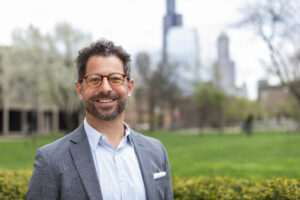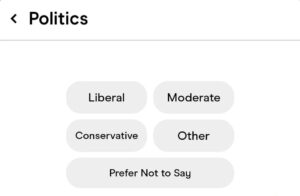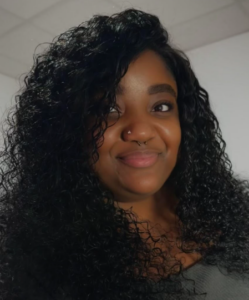March 9, 2009 - Kennedy-King College recently hosted a forum discussing HPV and cervical cancer, the second deadliest cancer globally, to inform the public about the preventable disease.
The event, “Our Daughters, Our Duty: the Facts About HPV and Cancer,” presented a panel of medical experts to an eager audience ready to learn. Held at the Kennedy-King College auditorium, people gathered to learn about the causes, prevention and treatment of both HPV and cervical cancer.
“I came just to get some information,” said high school senior Sitaara Sharif, 18. “I really don’t know much about it.”
On behalf of the University of Chicago’s Cancer Research Center (UCCRC), Dr. Rick Kittles welcomed the audience to the event co-hosted by the Kennedy-King College Nursing Program and the UCCRC. He encouraged everyone to be open, honest and straightforward with the topic.
“This is a topic that a lot of folk don’t talk about and a lot of folk don’t know about,” said Kittles. “This is a timely topic that we need to address.”
On hand to provide vital information about cervical cancer was gynecologic oncologist Dr. Yvonne Collins from the University of Illinois at Chicago. She began the program with a powerful presentation, complete with shocking pictures, discussing all aspects of cervical cancer. She explained the science behind the cancer to better help the audience understand why it is so important that they be screened for HPV on a regular basis.
“We know the cause, we have a screening test, so why do we have so many people coming in with this advanced disease?” asked Dr. Collins.
As part of her presentation, Dr. Collins provided guidelines for women to live by to best prevent themselves from acquiring HPV and cervical cancer. In addition to annual pap smears, she recommended that women maintain a healthy diet, practice safe sex and refrain from smoking. She also encouraged the audience to establish a good rapport with their doctors to better inform themselves and to help their daughters in the future.
“If we can eliminate any disease, we eliminate disease,” said Dr. Collins, expressing her desire for every women to be aware, get tested and protect themselves from HPV and cervical cancer regardless of age or ethnicity.
Well-known HPV researcher Dr. Kenneth Alexander also spoke at the event and lectured about the HPV vaccine Gardasil. The father of two young girls, Dr. Alexander spoke very passionately about the effectiveness and importance of the vaccine, which has proven to be nearly 100 percent effective in preventing HPV.
For the vaccine to be most effective, Dr. Alexander suggested girls receive the three-part shot while they’re getting other childhood immunizations. The fact that the shot is recommended for girls 11 to 12 has received some criticism, suggesting that it would encourage girls to engage in sexual activity early on by eliminating the risk of HPV. Dr. Alexander quickly dispelled the rumors. He explained that it’s better for girls to be vaccinated early on instead of hoping they’ll give their parents a six-month warning before their first sexual encounter.
“It’s like fire drill, we’re preparing ourselves for when the fire comes by getting your immune system to practice,” said Dr. Alexander.
The shot is administered three times over a six-month period. It is FDA approved and the main side effect noted was a sore arm at the injection site. Although Gardasil is recommended for girls between nine and 26, both Dr. Alexander and Dr. Collins agreed that all women should seek out the vaccine if they have never been diagnosed with HPV.
After two hours of discussion and lecture, the audience walked away with a newfound sense of understanding of the preventable disease.
“I can now share the information with people not involved in health care in a way that they’ll better understand,” said April Belk, a nursing student. “The pamphlets they gave us and the panelists really helped.”
The Board of Health is providing free vaccines for nine to 18-year-old girls and many insurance companies are starting to cover the cost of the $350-500 shot for older women.
For more information on HPV and cervical cancer, consult the National Cancer Institute. Additional facts about the Gardasil vaccine are available through the Center for Disease Control.
Categories:
Mind & Body Public
Tags:
cancer education program






Be First to Comment